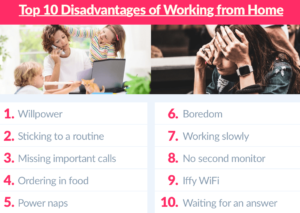The whole world has suffered an unprecedented time due to Covid19. This has resulted in many changes in our life. People had to adapt quickly to the new norms. Loss of jobs, restructuring the organisation became the strategy for the businesses to survive in these conditions. Since the beginning of the COVID-19 pandemic, more people around the world are working remotely. While the measure has been critical to helping control the spread of the virus, it hasn’t come without compromise. As the number of people working from home has increased, healthcare providers have seen a rise in work-related injuries that are unique to the home environment.
The COVID-19 lockdown produced behavioural, psychosocial, and environmental changes which, through a variety of mechanisms, has led to widespread rapid weight gain amongst certain populations worldwide. In 2016, the World Health Organization estimated that more than two billion adults are overweight and 650 million are obese. Lockdown-related weight gain will inflate these extraordinary statistics still further. However, even a modest gain in weight over a short period can have profound health implications with long-term consequences. Metabolic changes may ensue with enduring implications, increasing the incidence of diabetes and cardiovascular disease. The association of obesity with arthritis and depression is well established. The extra pounds acquired are unlikely to be shed and those already overweight are likely to gain twice that of normal-weight individuals. Rapid body mass increases in children are linked to obesity in later life whilst swift weight gain in pregnancy can have enduring health repercussions for both the mother and child. Food shopping increased by 124%, take-away food purchasing rose, and alcohol sales have surged by more than 24%.
There are other disadvantages which are illustrated below:

To tackle covibesity effectively changes must occur. The development of comprehensive strategies aimed at the most vulnerable sections of society is urgently needed now. Future pandemic waves need careful contingency planning to reduce further escalation of covibesity. The public requires support aided by health and education professionals as well as changes in central government policy. The food industry needs to be engaged in transformative marketing promoting healthy affordable options. Primary care will have a central role in the provision of support with proven benefits. Covibesity needs swift, effective, broad management involving multiple stakeholders. Support in high-risk communities particularly from primary care via novel initiatives is essential so that we do not win one battle, against Covid, only to lose another to obesity.
We as a company encourage staff to have full flexibility. All our staff are keen to be back and with substantial measure. During the whole lockdown, we encouraged our staff to take regular breaks or go for a walk and even we are not shy to talk about calorie intake.
Here at Outsourced Accounting, we take pride in bucking the trends and always remaining flexible. We have a passion for passing on our love of innovation and change to all we meet, clients and colleagues included.
To read more about lifestyle & wellbeing click here
Written by Kazi Ashraf
